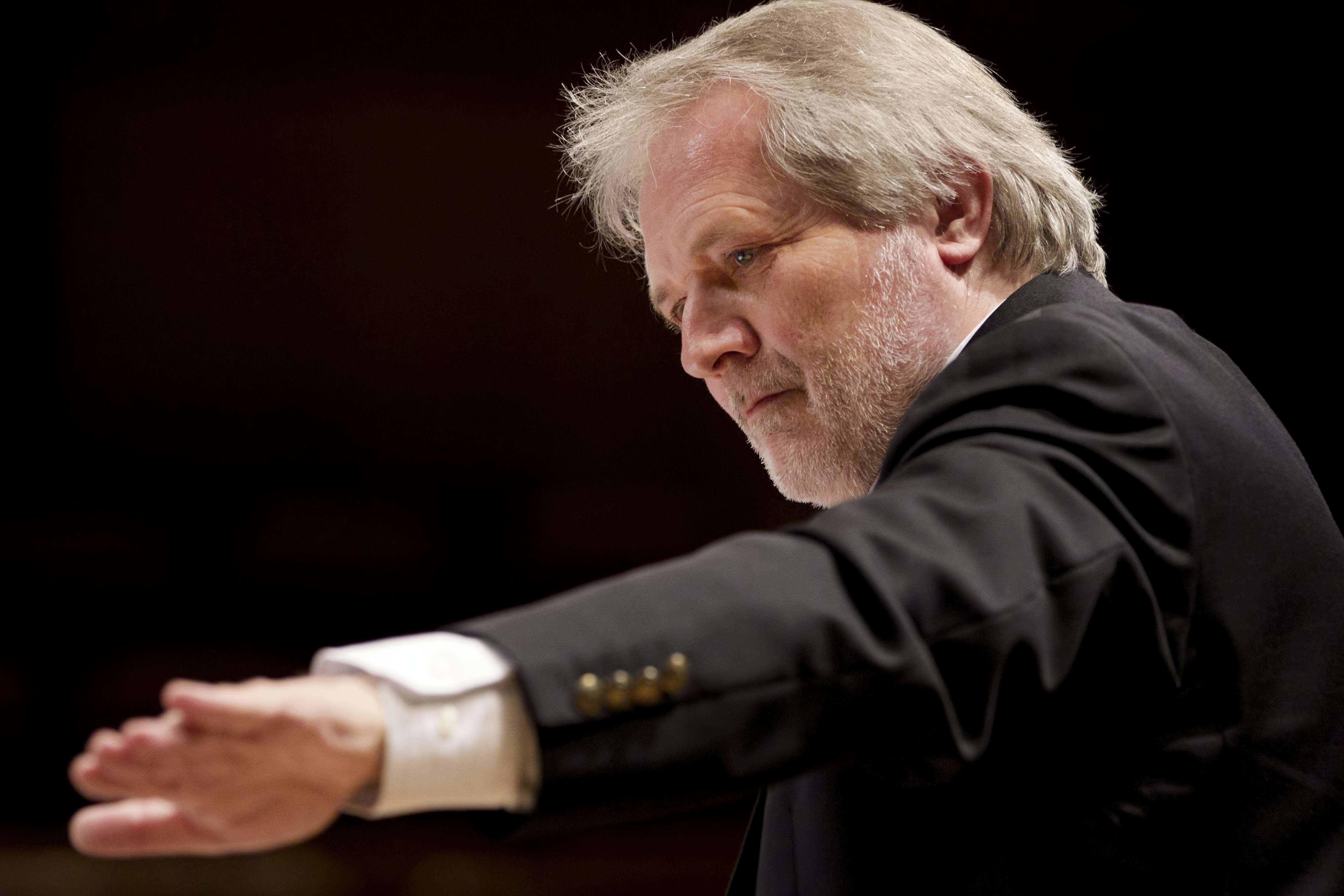|
Back
New Creations 2012 winds up Toronto
Roy Thomson Hall
03/07/2012 -
Peter Eötvös: Cello Concerto Grosso – zeroPoints (*)
Claude Vivier: Orion
Jörg Widmann: Elegie for Clarinet and Orchestra
Jörg Widmann (Clarinet)
The Toronto Symphony Orchestra, Peter Eötvös (*), Peter Oundjian (Conductors)

P. Eötvös (© Klaus Rudolph)
The final TSO New Creations Festival performance began with Claude Vivier’s Orion, an early commission (1979) in the Charles Dutoit era with l’Orchestre Symphonique de Montréal. It is one of just three pieces Vivier composed for orchestra alone (i.e., without singers, electronics, etc). The title came after the composition; the 13-minute piece consists of seven linked motifs and there are seven stars in the constellation Orion. It begins with a plaintive trumpet accompanied by tremolando strings; this progresses toward various crystalline sounds that evoke distant mysteries. A distant shout is heard twice - this is produced by a percussionist, his back to the audience, shouting into a large gong (very effective). Overall, an intriguing piece.
Peter Eötvös' Cello Concerto Grosso is a co-commission from the TSO with the Berlin Philharmonic (who premiered it last June), the orchestra of the Zurich Tonhalle (where I heard it performed in October), the Bergen Filharmonic and the Seoul Philharmonic. (Eötvös is a busy man - while making five appearance in Toronto conducting four programs of his work he is also working on major new commissions.) The able cello soloist was the TSO principal, Joseph Johnson, a youthful American now in his second season with the orchestra. The “grosso” aspect of the work is the cello section which supports the soloist through the three connected movements, described in a note by the composer as “energetic, dance-like”, “meditative”, and “fresh and sparkling”.
The piece has a certain subterranean aspect and even after two hearings it is hard to snuggle up to. In Zurich it was followed by Bartók’s Concerto for Orchestra and there is a certain affinity between the two pieces - terroir, perhaps, both composers being born in Transylvania.
By the way, there is a new way for audience members to signal their boredom with a piece: out come the i-phones and similar light-emitting gadgets. It’s visually distracting, although quieter than fidgeting, snoring or coughing.
Jörg Widmann, whose concert overture, Con brio, was played at the March 3 concert, appeared this evening to perform his Elegie for clarinet and orchestra, a 19-minute work composed in 2006 (and receiving its North American premiere). It is aptly titled - in fact it is profoundly, intensely elegiac. It uses the large orchestra sparsely and at moments seems to crawl along, but if you stick with it it takes us through a series of ever-evolving episodes, building to a livelier section before vanishing into thin air. (The program notes quote a musicologist who writes about “concomitant intervalic valencies” and “non-periodocity”. Well, OK.)
Peter Eötvös’ zeroPoints was commissioned in 2000 for the London Symphony Orchestra and Pierre Boulez. The two composer-conductors have worked together a lot; for example, Eötvös became director of the orchestra founded by Boulez, the Ensemble InterContemporain. The title of the piece derives from the playful bar-numbering used and almost leads one to expect something minimalist but such is not the case. "Maximalist" would be a better term, as it has a swelling, theatrical presence, full of colour ŕ la Messiaen, with off-kilter percussion, and episodes of hard Boulezian sparkle. Quite the showpiece.
Michael Johnson
|